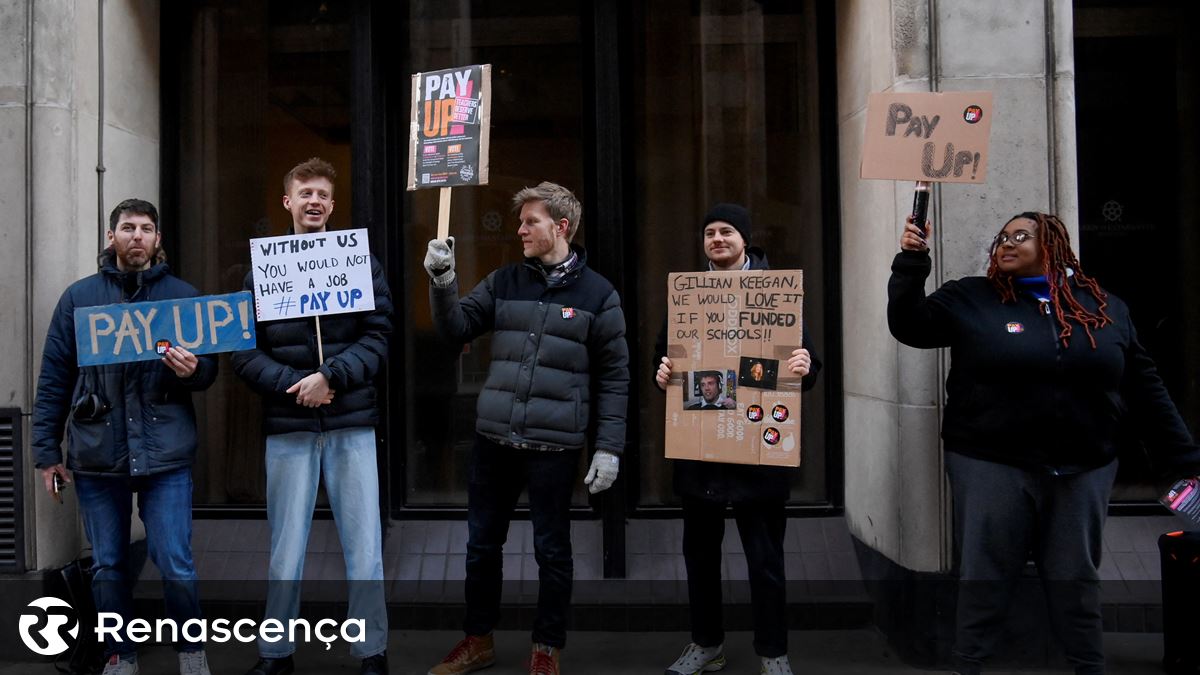Around half a million workers, including teachers, transport workers and border guards, are due to take part in Britain’s biggest strike in a decade on Wednesday to demand better pay.
Classes are expected to be closed or canceled at universities, elementary and secondary schools.
However, many institutions are expected to be open to some students, especially those who are going to take secondary school exams.
The National Education Union (NEU), the main teachers’ union, has seven days of strike action, affecting around 23,000 schools across the country in England and Wales, and the remaining days of strikes will be concentrated in some areas.
The NEU rejected a 5% rise offered by the British executive, demanding a rate above the rate of inflation, which fell to 10.5% in December but remains at its highest level in 40 years.
About 100,000 civil servants from the ministries of health, environment and economy are also expected to participate in the day of protest.
The shutdown is expected to be felt in the transport sector, such as trains and buses, as well as various sectors of the civil service, which began last year’s labor strike and will continue on Thursday and Friday.
The British government has already warned travelers of long waits at passport controls at airports and ports, even as the army, other civil servants and volunteers have been mobilized to reduce delays.
Next week, more strikes are planned for nurses and ambulance workers, while firefighters are set to decide on dates for the profession’s first strikes in 20 years.
On Tuesday, British Prime Minister Rishi Sunak, a conservative, reiterated that an increase in civil service salaries would increase taxes, something he wants to avoid given the rising cost of living crisis.
“Nothing makes me happier than waving a wand,” Rishi Sunak told reporters during a visit to a hospital, arguing that “there are many things to consider and it’s not an easy job.”
Meanwhile, on Tuesday, the Conservative Party approved legislation aimed at curbing labor disputes in some services generally considered essential, such as ambulances, firefighters and trains, calling for the introduction of minimum services.
The minimum level of services is determined by the government and unions who do not comply can be prosecuted and fined and workers fired.
Legislation to reduce the impact of further strikes has yet to be implemented and must go through the House of Lords, the upper house of the British parliament, which is expected to take several months.
Unions oppose the law, calling it “anti-strike”, and the main opposition Labor Party has now vowed to repeal the law if it comes to power.
Despite disruptions to public services and the economy, several studies have shown that strikes and work stoppages in various sectors continue to enjoy overwhelming support from the public.
A survey published by Public First found that 59% of respondents supported strikes by nurses, teachers (43%), postal workers (41%) and railway workers (36%).
British television station Sky News published a survey in which 37% of respondents expressed support for unions, up from 35% in November, while 28% were unfavorable, down from 34% two months ago.

“Internet evangelist. Writer. Hardcore alcoholaholic. Tv lover. Extreme reader. Coffee junkie. Falls down a lot.”




:strip_icc()/i.s3.glbimg.com/v1/AUTH_59edd422c0c84a879bd37670ae4f538a/internal_photos/bs/2024/7/G/M84nsiSOWjpwSdWlKYBQ/tupolev.jpg)

More Stories
US House Speaker angers Republicans over vote on Ukraine aid
UK regulator says Google's ad privacy changes aren't good enough, WSJ reports – Business Insider News
The US House has voted to provide billions in aid to Ukraine and Israel